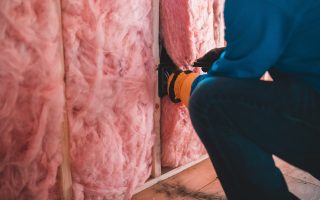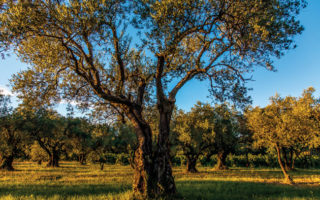Beekeeping in the Charente – Get Ready For Spring!

It’s been a bitterly cold couple of weeks in the Charente, but the returning cranes reassure me that we’re now heading towards Spring and better weather. Given the amount of icing sugar our bees have been consuming this winter, I am expecting them to emerge into the sunshine with fat tums. They’ll be thirsty too so I’ll be putting out water for them, taking care that they won’t drown in it. Saucers of water with bee-rafts (pieces of floating wood) and plant pots full of soil sitting in small pots of water (the soil soaks up the water and the bees can take the moisture from the soil) are ideal. It’s at this time of year that bemused owners may observe bees drinking at the edge of their swimming pools; they’re not fussy.
Now is the time to ensure that everything is ready for the approaching beekeeping season, as before we know it, we’ll be rushing around trying to find spare frames, clean hive tools, and extra boxes. Apiary hygiene is key as diseases can spread quickly from hive to hive, and this time of year is perfect for cleaning equipment in strong solutions of washing soda. Old brood frames can be changed for clean foundation wax too – at least three frames per hive should be removed and replaced with new or cleaned ones.

It’s important too to clean all clothing, or, in the case of my gloves (pictured) to replace them! Gloves can quickly become sticky with propolis, a resin exuded by trees and collected by bees to be used for filling cracks and strengthening the edges of combs. It’s simple enough to remove, just put the gloves in a bag in the freezer; the propolis hardens and then can be cracked off. Beware, though – you have to work quickly as it warms up and is sticky again in no time.
Bee stings not only hurt but, along with the venom, they leave behind a pheromone which alerts other bees to the attack site…so, as you can imagine, it’s not a good idea to inspect a hive while wearing clothing that is covered in this scent. It’s an invitation to be stung – another solid reason for thoroughly washing all equipment!
As Spring approaches the colonies will be building up quickly, and seeing bees return to the hive with large quantities of pollen usually means that the queen has started laying. Now is a good time to check that you have spare boxes to catch any early swarms, as you don’t want to successfully bring a colony through winter only to lose it as soon as the weather gets warmer. The ideal space for bees is around 40 cubic litres; they can be a bit like Goldilocks, rejecting anything that seems too big or too small, so it’s best to try and provide them with something that looks just about right. We put out old (but cleaned) brood boxes, roping them up in trees close to our apiary, so that we can easily haul them down again when they become occupied.
Next month it will be warm enough to make our first hive inspections and see what state our colonies are in. We’ll be looking for a healthy queen, and signs of her laying, as well as checking how much food there is stored and how much space the bees have. We’ll also ensure there is no disease, and look carefully for evidence that the colony is thinking of swarming.
Amanda and Kevin moved to Confolens (16) in 2015, opening a chambre d’hôte and launching their beekeeping experience holiday business. They live with five cats, two tortoises and several thousand bees, and enjoy sharing their adventures in the apiary with others.
Share to: Facebook Twitter LinkedIn Email
Leave a reply
Your email address will not be published. Required fields are marked *



